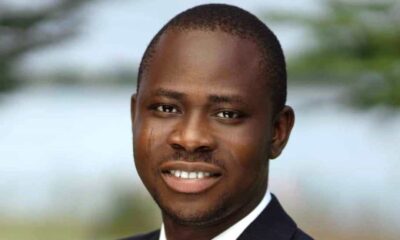News
Boko Haram leader Abubakar Shekau critically ill, says Reports


Abubakar Shekau, the leader of the terror group Boko Haram, is said to be weakened by ill health, prompting questions about his ability to lead the militants, the AFP reported on Friday.
The sources said Shekau has a range of conditions that have left him “too weak to be in charge” of the jihadists, whose insurgency has killed at least 20,000 in Nigeria since 2009.
“He has high blood pressure and failing sight from diabetes-related complications,” said one source with close knowledge of the group’s activities.
A senior security source tracking the conflict, who also asked not to be identified because he was not authorised to speak to the media, described Shekau’s diabetes as “debilitating”.
“He suffers from diminished eyesight from cataracts or glaucoma as a result of diabetes,” he added.
The source with knowledge of Boko Haram’s activities said Shekau and his lieutenants have been in talks this week about his “failing health” and whether he was well enough to lead.
Boko Haram split in mid-2016 over ideological differences.
One faction, headed by Abu-Mus’ab Al-Barnawi, whose father Mohammed Yusuf founded Boko Haram, won the support of the Islamic State group.
Some experts suggested that with Shekau off the scene, the different groups could be reconciled.
Shekau used to appear frequently on video messages from the group, particularly at the height of the conflict, when Boko Haram ran riot across northeast Nigeria, seizing territory.
The Nigerian authorities have claimed Shekau has died or been killed on at least three occasions, and that he has been replaced by a series of lookalikes.
Shekau’s last appearance on camera was in a 14-minute video released on February 6 in which he claimed responsibility for attacks in Borno state capital, Maiduguri, and other towns.
He was previously seen on January 15 in an 11-minute video in which some of the remaining Chibok schoolgirls who were abducted in 2014 vowed never to return to their parents.
Both sources said between February and April last year, Shekau was bed-ridden in Bulayaga, a village in the Konduga area of Borno, near his group’s Sambisa Forest stronghold.
Bulayaga is some 35 kilometres (22 miles) from Maiduguri.
“No-one thought he would survive because he was terribly sick from diabetes and malaria,” said the security source.
Shekau resurfaced in a video published on May 4, 2017, rejecting claims he had been injured in a Nigerian air strike the previous day at the nearby village of Balla.
“I’m alive, I’m alive, I’m alive,” he said.
But in it, he looked frail and appeared to have difficulty reading from a prepared speech, which he held close to his face in an apparent indication of vision problems.
The August 2016 split caused bitter in-fighting and saw Shekau lose men, territory and weapons.
Barnawi, whose group operates in northern Borno around the shores of Lake Chad, is now seen as “more in charge”, said the source.
Yan St-Pierre, counter-terrorism advisor and head of the Modern Security Consulting Group, said Shekau’s removal would only have a “limited” effect internally and on operations.
“Most terrorist organisations always have a ‘next man up’ planned because leadership could be lost at any time,” he said in emailed comments.
“The myth of Shekau” could also remain as a “galvanising factor” for Boko Haram fighters, he added.
The security source suggested the removal of Shekau “could signal the mending of fences between the two factions”.
“Shekau has been the major wedge to reconciliation between the factions and if he resigns, the prospect of a truce and merger between the factions is high,” he added.
Ryan Cummings, Africa security analyst at the Signal Risk group, agreed the two sides could move closer but also suggested it could trigger a power struggle in the high command.
That “could trigger further violent factionalism”, he added. (NAN)












